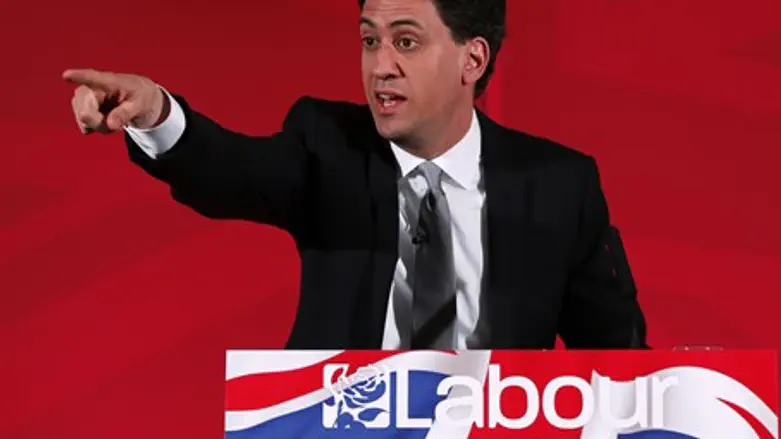
Labor's worse-than-expected defeat in the UK general election is a personal blow for its leader Ed Miliband, and led to increased pressure Friday for the 45-year-old to step down.
Written off as a political insider lacking charisma just a few months ago, Miliband had won plaudits for his tough campaign style and some observers saw leadership material despite his awkward image, reports AFP.
Leftist Labor was neck-and-neck with the Conservatives in poll after poll, helping bolster Miliband against Prime Minister David Cameron - long seen as the more composed and experienced politician.
But actual results showed him far behind Cameron.
"If the result is anything like what it looks to be it would be a terrible disappointment (for Labor)," said Tony Travers, a politics professor from the London School of Economics.
The recriminations within the party were not slow in coming, with former minister Gerry Sutcliffe saying it was "time for someone else to take over."
The left-leaning New Statesman magazine cited a source at Labor headquarters as saying: "Ed has to resign tomorrow. Everyone here accepts that."
The Daily Mirror, which endorsed Miliband in the campaign, said in an editorial that the Labor leader had to resign "later today or tomorrow."
"Ed Miliband has to go after general election humiliation - the only question is when," it said.
But Travers said it was possible that Miliband could stay on since "the Labor Party famously doesn't get rid of leaders."
"Ten commandments"
Miliband is the son of Jewish immigrants, although he self identifies as an atheist.
His awkwardness was summed up in a photograph of him unattractively eating a bacon sandwich - an image much reproduced in Britain's right-wing press during the campaign.
He stumbled following a televised debate, and then unveiled a giant slab of stone etched with his key pledges in what was mocked as his "Moses moment."
A father of two married to environmental lawyer Justine Thornton, Miliband put living standards at the heart of his election campaign, insisting that an economic upturn under the Conservative-Liberal Democrat coalition has not reached ordinary people.
Accused by opponents of leading a party with little economic credibility, Miliband said he would continue cuts to bring down Britain's deficit, but on a gentler scale than the Conservatives.
Backstabbing his brother
Born to a Marxist academic father and a campaigning activist mother, Miliband grew up in a London household where left-wing intellectuals from around the world came to dinner.
He became active in student politics while at Oxford University and after a stint as a journalist quickly rose through the ranks of the Labor party.
Miliband later served as energy minister and Treasury adviser in successive Labor governments.
In 2010 he alarmed many in the ranks of the party by standing against his own brother, David Miliband, in the party's leadership contest. David, a protege of former prime minister Tony Blair, was seen as less left-wing than Ed.
David left politics and moved to the United States after his surprise defeat to his younger brother, who cast his victory as a break from the market-friendly "New Labor" of Blair and a return to the party's hardcore left-wing roots.
Miliband has since said their relationship is "healing."
But the challenge, seen by some as "an almost biblical act of fratricide" according to Miliband's biographers, has not been forgotten.
In an interview during the campaign, Miliband was relentlessly questioned about his character and his ability to withstand the challenges ahead.
"I've been underestimated at every turn. People said I wouldn't become leader and I did. People said four years ago he can't become prime minister," he said.
On Friday, it seemed the naysayers were right after all.